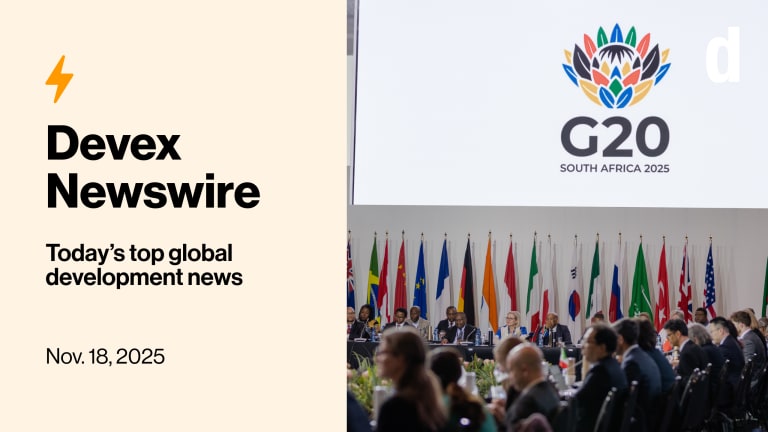Russia’s invasion of Ukraine shows that Africa must move away from its dependence on food imports, as recent experience with COVID-19 vaccine deficiencies has demonstrated that the continent cannot rely on the rest of the world during a crisis, the head of the African Development Bank said.
“The thing about Russia’s war in Ukraine is the ramification that it has,” Akinwumi Adesina told Devex. “And the ramifications are going to be quite huge for Africa.”
The continent depends on both countries for some 90% of its cereal, with prices spiking 45% across Africa, Adesina said. More than 2 million metric tons of fertilizers also come from the Black Sea region.
This story is forDevex Promembers
Unlock this story now with a 15-day free trial of Devex Pro.
With a Devex Pro subscription you'll get access to deeper analysis and exclusive insights from our reporters and analysts.
Start my free trialRequest a group subscription







